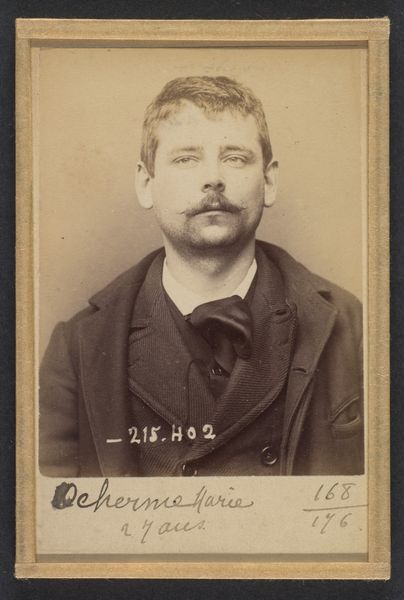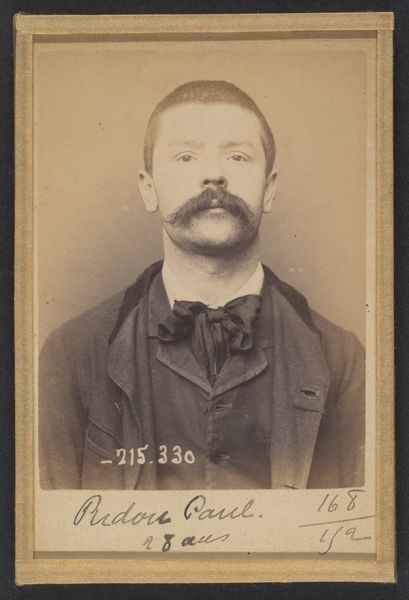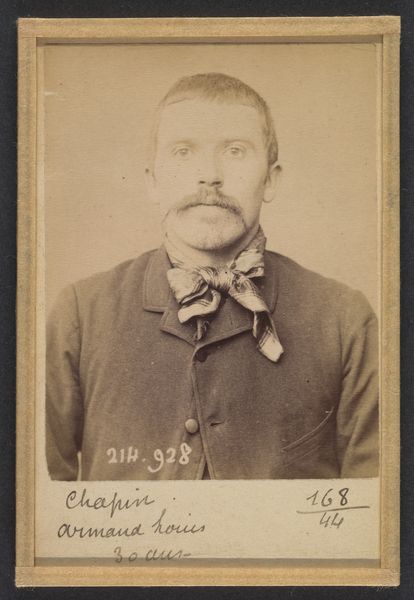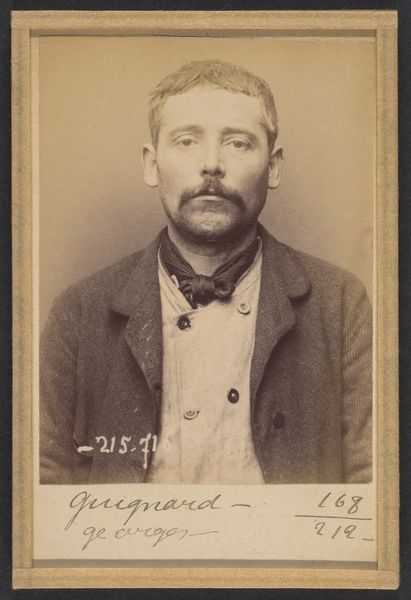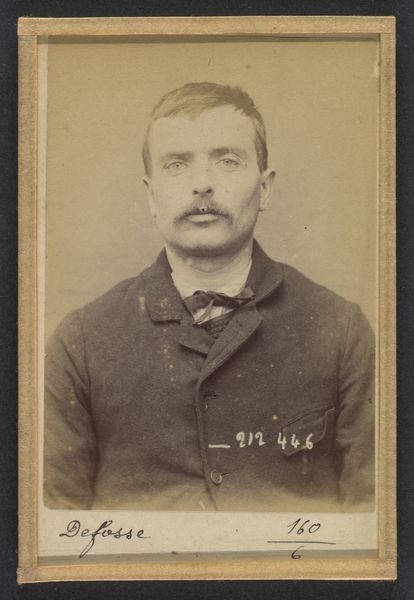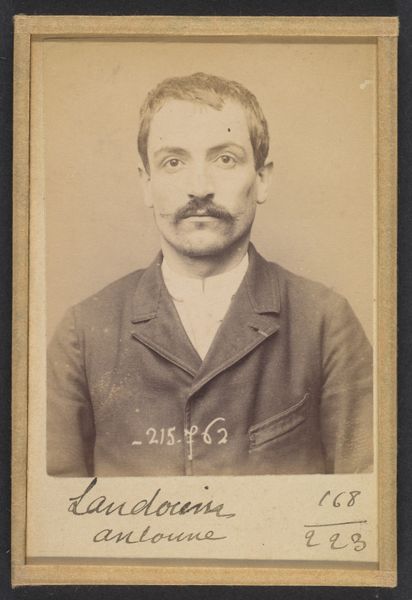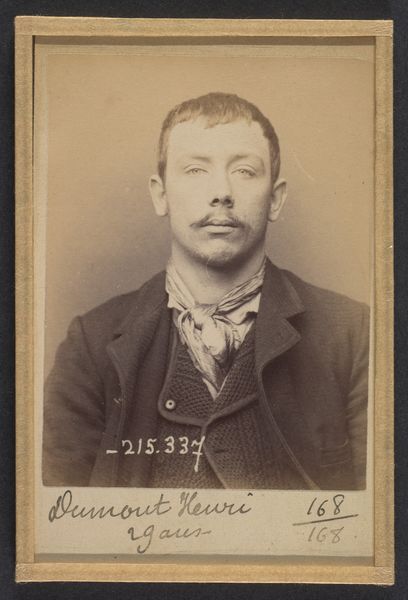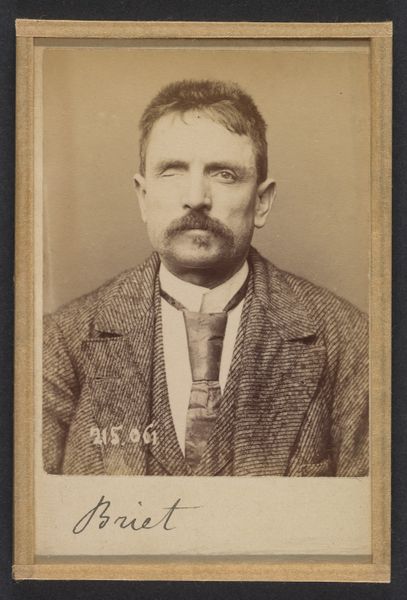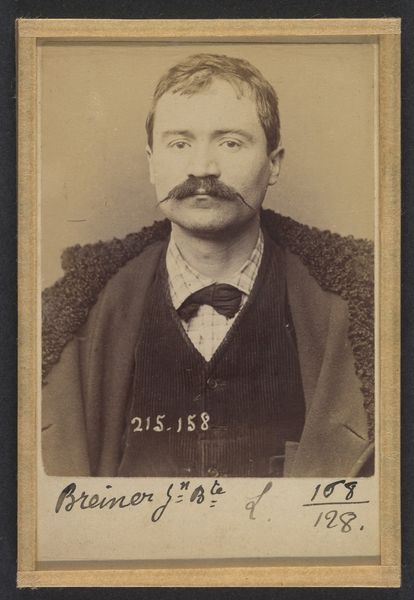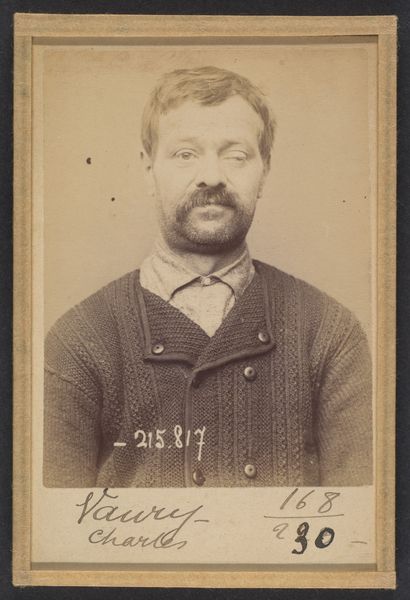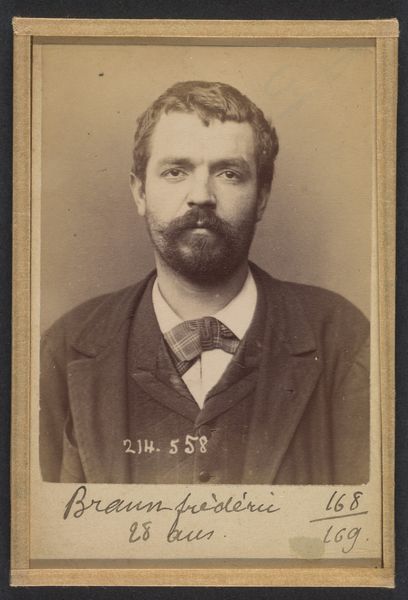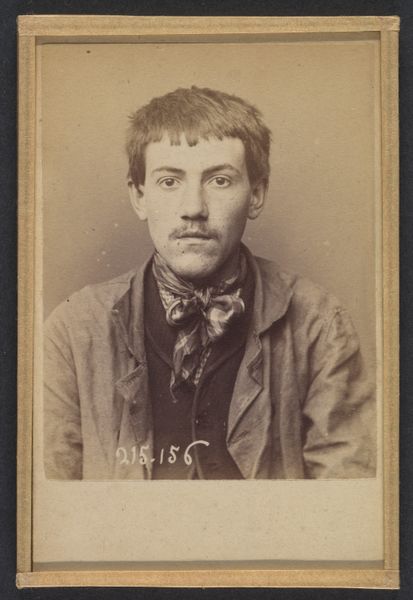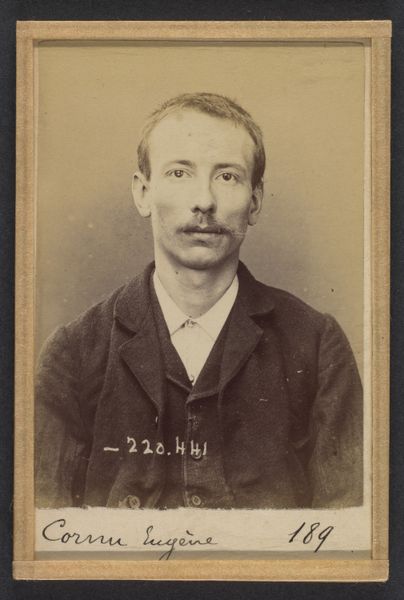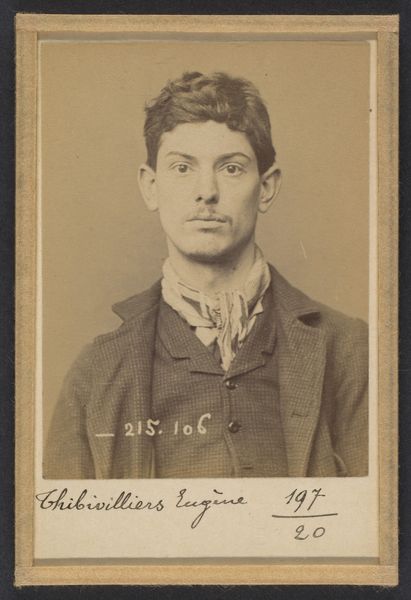
Charrié. Léon, Joseph. 27 ans, né à Paris XVllle. Garçon Plombier. Anarchiste. 1/3/94. 1894
0:00
0:00
photography, gelatin-silver-print
#
portrait
#
portrait
#
photography
#
gelatin-silver-print
Dimensions: 10.5 x 7 x 0.5 cm (4 1/8 x 2 3/4 x 3/16 in.) each
Copyright: Public Domain
Editor: This is a gelatin silver print from 1894 by Alphonse Bertillon. It’s titled "Charrié. Léon, Joseph. 27 ans, né à Paris XVIIIe. Garçon Plombier. Anarchiste." The flatness of the image is striking, almost clinical. What story does it tell you? Curator: I see the relentless march of the modern bureaucratic state. Bertillon's innovation wasn’t aesthetic, but procedural: a system for identifying repeat offenders. Consider the materials—the gelatin silver print, easily reproduced. This allowed for mass distribution of the image, a key element in controlling a populace. Editor: So you are saying it is less about portraiture and more about production? Curator: Precisely! It's about a process, a technology, designed to categorize and control individuals deemed outside the norms of bourgeois society. Look at the subject's job title—plumber. How does this work relate to the labor conditions of the time? Editor: I never thought about the social context. The annotation 'Anarchiste' links him to the radical political movements also developing. Curator: Indeed. And by photographing Charrié, the state effectively attempted to negate his individuality and absorb him into a system. Editor: This changes how I view portraiture. Thinking about the act of classifying instead of representation… It adds a completely different layer. Curator: The act of making, reproducing, and distributing such an image – a form of power. The power of naming, recording, and ultimately, attempting to control an individual. A power relationship, codified in the image. Editor: That's an incredible perspective. Thanks!
Comments
No comments
Be the first to comment and join the conversation on the ultimate creative platform.
